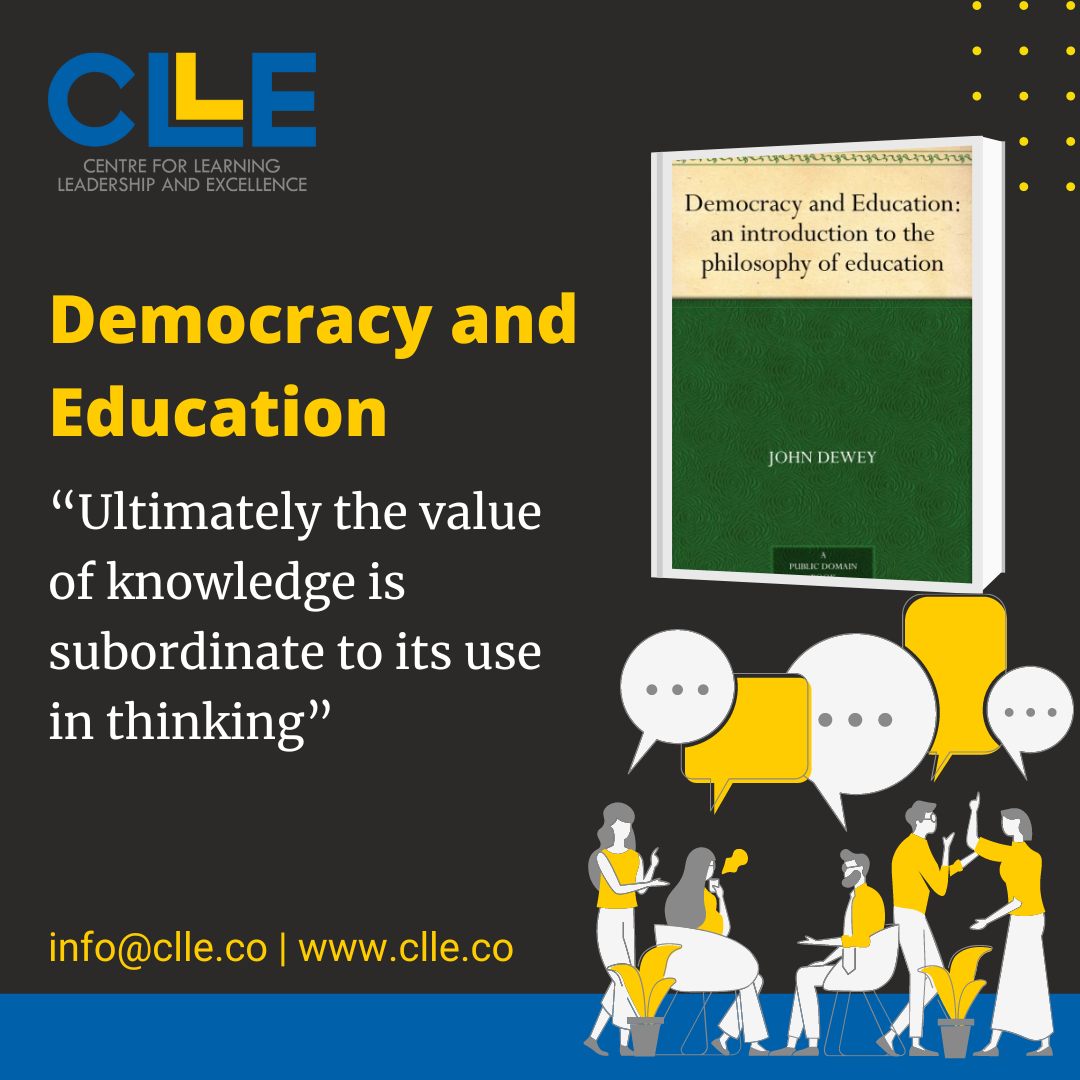Centre for Learning Leadership and Excellence
No. 48, Sri Kamakoti, Second Floor, 12th Main Road, Jayanagar 4th T Block East, Jayanagar 3rd Block, Bengaluru - 560011


Thinking is the accurate and deliberate instituting of connections between what is done and its consequences. It notes not only that they are connected, but the details of the connection. It makes connecting links explicit in the form of relationships. The stimulus to thinking is found when we wish to determine the significance of some act, performed or to be performed. Then we anticipate consequences. This implies that the situation as it stands is, either in fact or to us, incomplete and hence indeterminate. The projection of consequences means a proposed or tentative solution. To perfect this hypothesis, existing conditions have to be carefully scrutinized and the implications of the hypothesis developed - an operation called reasoning. Then the suggested solution - the idea or theory - has to be tested by acting upon it. If it brings about certain consequences, certain determinate changes, in the world, it is accepted as valid. Otherwise, it is modified, and another trial is made.
Thinking includes all of these steps, the sense of a problem, the observation of conditions, the formation and rational elaboration of a suggested conclusion, and the active experimental testing. While all thinking results in knowledge, ultimately the value of knowledge is subordinate to its use in thinking. For we live not in a settled and finished world, but in one which is going on, and where our main task is prospective, and where retrospect - and all knowledge as distinct from thought is retrospect - is of value in the solidity, security, and fertility it affords our dealings with the future.
Source: Democracy and Education An introduction to the philosophy of education by John Dewey